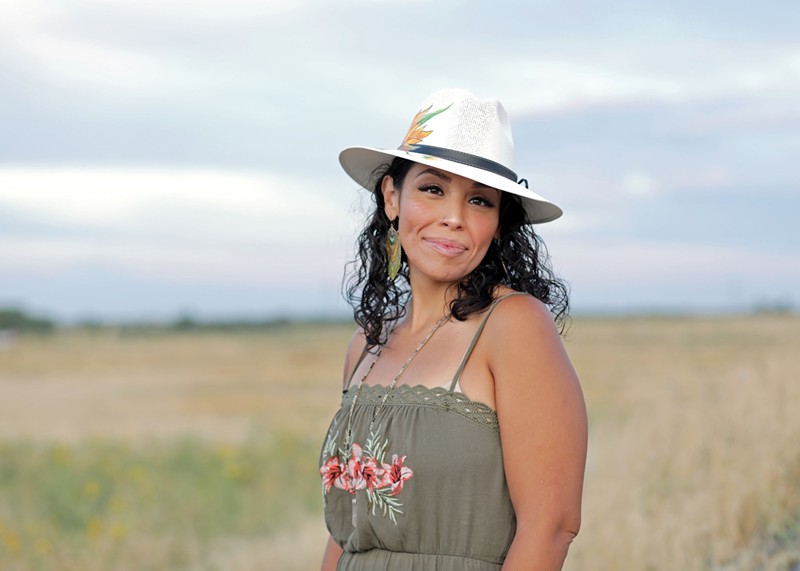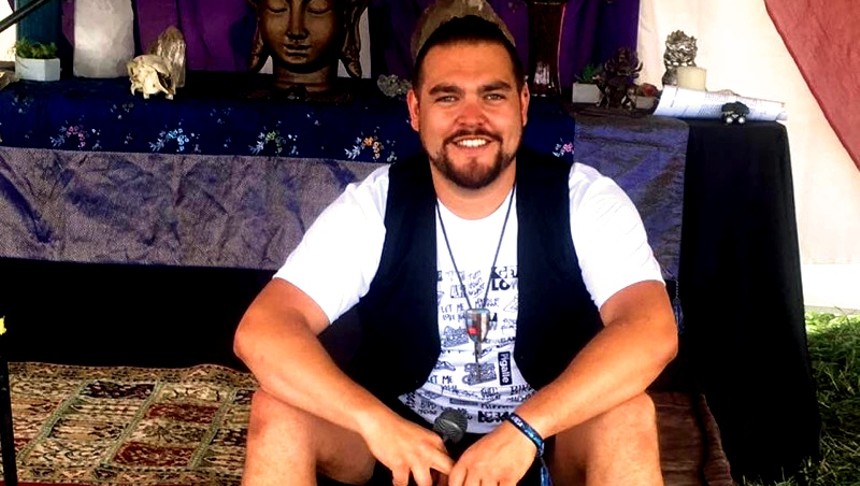Colorado’s new Environmental Justice Action Task Force held its first meeting on December 20. "We can finally address environmental racism," says Renee M. Chacon, a task force member and co-founder and executive director of Womxn From the Mountain.
The task force, which was established during the last session of the Colorado General Assembly after the passage of House Bill 1266, the Environmental Justice Act, is charged with making legislative and regulatory policy recommendations by November 2022 that will suggest practical ways to address environmental justice inequalities across the state, with a focus on disproportionately impacted communities — those that experience public-health and environmental disparities.
The task force’s 27 members include nine appointed by the governor, sixteen by the legislature and two by tribal governments. Ean Thomas Tafoya, Colorado state director of GreenLatinos, was appointed by Speaker of the House Alec Garnett; he says that he’s glad that so many government representatives will be in the room, as they have decision-making power. He’s also proud that many individuals from his community are included.
“GreenLatinos has put in a lot of effort to organize across the state of Colorado — and to have five people represented in the task force, from different communities and working for different organizations but attached to our organization, is something we're very proud of,” Tafoya says. GreenLatinos had advocated for the passage of the Environmental Justice Act, which was sponsored by representatives Dominique Jackson and Mike Weissman and senators Faith Winter and Janet Buckner.
The entire task force will meet every other month; this meeting was the first time members gathered, primarily to discuss the group's mission and duties. But even though it was just a kickoff meeting, there was still a public comment section, held at 4 p.m. — the best time during the traditional workday for working people to access public comment, Tafoya notes. And people showed up, sharing suggestions and concerns.
“The dialogues and conversation have been really fruitful, and the public turned out throughout the entire public comment, so I'll take that as a really good sign for participation,” Tafoya says. “This has been generations in the making, and the only way that we make these changes is with you, the people, and so we need people engaged.”
Chacon agrees that input from the community will be key to the success of the task force. “My biggest concern is that we as a community have as much influence on policy making and change and implementation for our communities as industry,” she says, noting that half-a-dozen members of the task force have ties to the oil and gas industry.
They include Gary Arnold, a pipefitter; Kamilah Beasley, who used to work for Great Western Petroleum; Kimberly Mendoza-Cooke, who works for Oxy, a petroleum company; Michael Sapp, who used to work for the City of Denver and is now with Xcel; Tyson Johnston, a natural-gas professional; and Uni Blake, a toxicologist.
The task force is still short three members: Senate Minority Leader Chris Holbert has yet to appoint one, and the two representatives from the Ute Mountain Tribe and the Southern Ute Tribe have not yet been chosen. “The tribal nations’ consultation is critical for talking about historic environmental racism and seizure of land,” Tafoya notes.
At the first meeting, the members who were there discussed some process issues, including whether final recommendations should require a consensus or supermajority vote to ensure political viability; the current bylaws stipulate only a simple majority, or fourteen votes.
“Are we getting ahead of ourselves if we're deciding what's politically possible?” Tafoya asks. “Because who would have thought we would have passed 1266? It looked dead in the water until we got out there and started really hitting the governor hard. ... My community wants us to not write off what is seen as politically deemed possible.”
According to Tafoya, many of the environmental justice measures in the last session, including the Environmental Justice Act that established this task force, came down to the wire. Senate Bill 272, which modernized the Public Utilities Commission, including adding environmental justice elements; Senate Bill 260, which increased sustainability in the transportation system; and HB 1266 all passed in the last week. The Environmental Justice Act actually passed on the last day, after 25 pages of amendments were considered, and 14 of the 28 made the final bill.
Tafoya says that the Environmental Justice Act was important because the state government wasn't acting quickly on the Climate Action Plan to Reduce Pollution, which the legislature had passed in 2019; Jackson was also a sponsor of that bill. The Colorado Chamber of Commerce and the Colorado Oil and Gas Association both opposed HB 1266.
Opponents argued that the bill advocated for a cap-and-trade policy, in which there is a statewide cap on emissions and companies that decrease emissions more can sell carbon credits to those that decrease emissions less to even out emissions overall. Governor Jared Polis is against cap-and-trade policies as a means of reducing emissions. Although HB 1266 did not actually advocate for a cap-and-trade policy, Polis issued an executive order when he signed the bill, reaffirming that state employees are not to work on any cap-and-trade policies.
On January 7, task force members will say which of four subcommittees they want to serve on, tentatively listed as Equity Analysis, Disproportionately Impacted Community Definition, Data & Reducing Environmental Health Disparities and Best Practices for Community Engagement. Chacon hopes to serve on either the Equity Analysis or Data subcommittees; Indigenous communities like her own aren’t often represented by data, she says, adding that she wants to work to reduce inequities rather than spending time defining them.
The task force will vote to finalize the bylaws at its February meeting, when it will also choose two co-chairs to lead the group; Tafoya hopes to be one. The subcommittees will meet in the months when the full group does not. The task force must submit draft recommendations by June.
Chacon is optimistic that the task force will bring enforceable protections to disproportionately impacted communities and be bold in its recommendations. “I’m part of this because we need transformative change,” she says. “We have the chance to do that.”
[
{
"name": "Air - MediumRectangle - Inline Content - Mobile Display Size",
"component": "12017618",
"insertPoint": "2",
"requiredCountToDisplay": "2",
"watchElement": ".fdn-content-body",
"astAdList": [
{
"adType": "rectangle",
"displayTargets": "mobile"
}
]
},{
"name": "Editor Picks",
"component": "17242653",
"insertPoint": "4",
"requiredCountToDisplay": "1",
"watchElement": ".fdn-content-body",
"astAdList": [
{
"adType": "rectangle",
"displayTargets": "desktop|tablet"
},{
"adType": "rectangle",
"displayTargets": "desktop|tablet|mobile"
}
]
},{
"name": "Inline Links",
"component": "18838239",
"insertPoint": "8th",
"startingPoint": 8,
"requiredCountToDisplay": "7",
"maxInsertions": 25
},{
"name": "Air - MediumRectangle - Combo - Inline Content",
"component": "17261320",
"insertPoint": "8th",
"startingPoint": 8,
"requiredCountToDisplay": "7",
"maxInsertions": 25,
"watchElement": ".fdn-content-body",
"astAdList": [
{
"adType": "rectangle",
"displayTargets": "desktop|tablet"
},{
"adType": "rectangle",
"displayTargets": "desktop|tablet|mobile"
}
]
},{
"name": "Inline Links",
"component": "18838239",
"insertPoint": "8th",
"startingPoint": 12,
"requiredCountToDisplay": "11",
"maxInsertions": 25
},{
"name": "Air - Leaderboard Tower - Combo - Inline Content",
"component": "17261321",
"insertPoint": "8th",
"startingPoint": 12,
"requiredCountToDisplay": "11",
"maxInsertions": 25,
"watchElement": ".fdn-content-body",
"astAdList": [
{
"adType": "leaderboardInlineContent",
"displayTargets": "desktop|tablet"
},{
"adType": "tower",
"displayTargets": "mobile"
}
]
}
]












